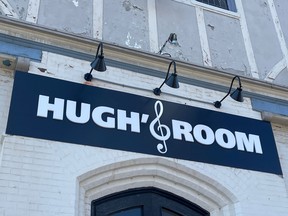
Reviews and recommendations are unbiased and products are independently selected. Postmedia may earn an affiliate commission from purchases made through links on this page.
Article content
New way of financing is a win-win for the community and the investor
Advertisement 2
Article content
Hugh’s Room Live could have gone the way of a number of music venues in and around Toronto and simply cease to exist, had it not been for the power of a community bond.
Instead, it is alive, well and thriving with a new venue that will be eventually paid for in part through Hugh’s Bonds, community bonds, which are being used towards the purchase of a location at 296 Broadview Ave.
For Brian Iler, co-founding partner of the law firm of Iler Campbell LLP and board chair of Hugh’s Room Live, he along with five others have played an integral role in guaranteeing long-term success for the club, which was first formed in 2001.
It also helped that he was well versed in this community-based form of funding, having founded an organization called SolarShare, a non-profit cooperative in which its members invest in solar projects.
Article content
Advertisement 3
Article content
He also sits on the board of Tapestry Community Capital, the bond holder of the Kensington Market Community Land Trust (KMCLT), whose goal is to buy properties in the area to avoid gentrification.
Iler describes community bonds as a way to finance good works or projects that have community value that have not really been explored as thoroughly in the past: “Certainly golf clubs and yacht clubs and churches have all used them, he says, but apart from those entities, usage has been limited.”
Looking at applying the “model of giving a community a way to finance their own initiatives in a way that feels secure, it’s a win-win for the community and for the investor,” he says. “There is a lot of potential.”
According to a fact sheet from the Hugh’s Room Live board, “rising property values, gentrification and declining funding has effected music venues in Toronto all around leading to the closure of 11 spaces since March 2020.”
Advertisement 4
Article content
Fortunately, it adds, “keeping spaces under non-profit ownership plays a big role in how cultural venues … are able to operate and sustain.”
That all came about due to some fortuitous timing. “We were renting space at 2261 Dundas St. W. and the owner refused to agree to a rent we could afford,” says Iler.
“We had to close down, but fortunately for us, we closed about the same time Covid hit. We would not have had business, and would not have been able to pay the rent we had agreed to. He (the landlord) would not budge.”
The sad thing is, he adds “that place is still sitting empty all these years later. If he had been a little more accommodating, we would have still been in that location. And maybe we would have bought it from him, but we ended up getting a far superior property for far lower than he offered it for sale. It is all good.”
The new venue on Broadview Ave., is a property that was purchased by the board for $4 million. The plan is to raise $1.3 million of that total through Hugh Bonds with the remainder coming from operating revenues and other fund-raising initiatives.
The use of bonds, says Iler is an interesting way of finding capital to build either housing or maintain an establishment such as Hugh’s Room Live: “Banks are difficult to deal with and I know that Tapestry has worked with a number of housing organizations, funding projects that would not be able to proceed without the assistance of community bonds.”
Article content
